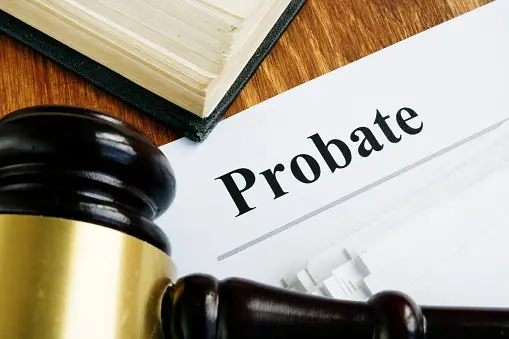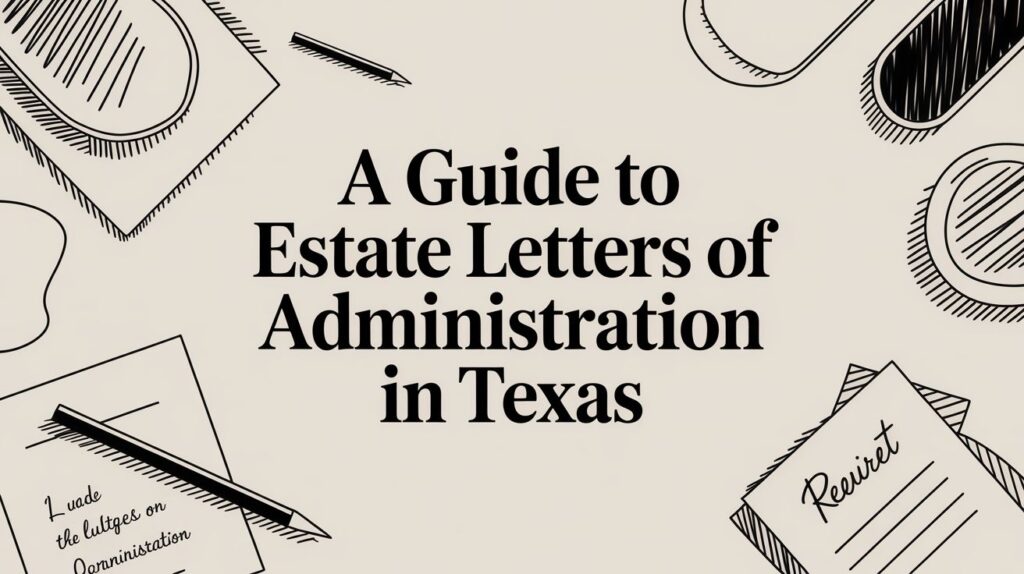Probate in Texas is a comprehensive legal procedure that serves several essential functions following an individual’s passing. This process plays a crucial role in safeguarding the rights of the deceased person and their heirs or beneficiaries. Let’s delve into a more comprehensive understanding of probate in the Lone Star State.
Understanding Texas Probate
At its core, probate ensures the orderly distribution of a deceased person’s assets while addressing their outstanding debts and obligations. It is important to validate the authenticity of the deceased person’s will, assuming they had one. The court meticulously examines the will to confirm its legality and adherence to Texas state laws. The probate court follows Texas’s intestacy laws when there is no valid will. This often involves prioritizing immediate family members such as spouses, children, and relatives.
The probate process is typically overseen by an executor, a role usually designated in the deceased person’s will. This executor is entrusted with managing the deceased person’s estate. This includes identifying, valuing, and safeguarding the assets, settling outstanding debts, and addressing tax obligations. Furthermore, the executor ensures that the assets are distributed to the specified beneficiaries as outlined in the will or as dictated by Texas intestacy laws.

It’s essential to recognize that not all assets are subject to probate in Texas. Some assets, such as life insurance policies with named beneficiaries, retirement accounts with designated beneficiaries, and jointly held property with rights of survivorship, pass directly to the named beneficiaries outside of the probate process. While probate is pivotal in facilitating the organized transfer of assets, it can be a complex and time-consuming process. It entails filing various legal documents with the court, notifying creditors of the deceased person’s passing, and addressing any disputes or challenges that may arise during the proceedings.
Given the intricacies and potential challenges, seeking legal counsel is often advisable, particularly when dealing with substantial estates or intricate family dynamics. An experienced probate attorney can provide invaluable guidance, streamline the process, ensure compliance with Texas laws, and mitigate potential conflicts among heirs or claims from creditors.
Who Is a Probate Attorney?
A probate attorney, often called an estate attorney or probate lawyer, is a legal professional specializing in probate law. These attorneys are well-versed in the laws and regulations governing the administration of estates, the distribution of assets, and the resolution of matters related to a deceased person’s estate. Here’s a more detailed explanation of who a probate attorney is and what they do:
Legal Expertise:
A probate attorney deeply understands the complex legal processes of probate and estate administration. They are knowledgeable about state-specific probate laws, including those in Texas, and can guide how they apply to your situation.
Estate Planning:
Probate attorneys often assist individuals in creating comprehensive estate plans. This includes drafting wills, trusts, and other legal documents to ensure that their client’s assets are distributed according to their wishes after their passing.
Will Validation:
When a deceased person has a will, a probate attorney can help verify the will’s validity, ensuring it complies with the state’s legal requirements. They may also represent clients in will contests or disputes if challenges arise.
Estate Administration:
Probate attorneys guide executors or administrators (individuals responsible for managing the deceased person’s estate) through probate. This involves filing necessary documents, valuing assets, settling debts, and distributing assets to beneficiaries or heirs.
Asset Protection:
These attorneys can offer strategies to protect estate assets during probate, ensuring that the estate’s value is preserved and assets are distributed efficiently.
Mediation and Dispute Resolution:

In cases where disputes arise among heirs, beneficiaries, or creditors, a probate attorney can facilitate mediation and help parties reach amicable resolutions. They may also represent clients in probate litigation if necessary.
Tax Matters:
Probate attorneys know estate and inheritance tax laws. They can advise on minimizing tax liabilities and ensuring the estate complies with tax requirements.
Guardianship:
In situations involving minor children or individuals with special needs, probate attorneys can help establish guardianships or conservatorships to protect their interests.
Legal Documentation:
They prepare and file the required legal documents with the probate court, ensuring that all necessary paperwork is submitted accurately and on time.
Court Representation:
If probate proceedings require court appearances or hearings, a probate attorney represents their clients before the judge, presenting evidence and arguments on their behalf.
Legal Advice:
Probate attorneys offer legal advice and counsel to their clients throughout the probate process, addressing any questions or concerns that may arise.
In essence, a probate attorney is a legal professional who specializes in navigating the legal complexities surrounding the distribution of assets and estate administration following an individual’s passing. Whether planning your estate, managing the probate process, or dealing with disputes, a probate attorney can provide invaluable legal guidance and representation to ensure everything is handled correctly and following the law.
How To Choose the Right Probate Attorney In Texas
Choosing the right probate attorney in Texas ensures a smooth and successful probate process. Here are some steps to help you make an informed choice:
Identify Your Needs:
Begin by assessing your specific needs and goals related to probate. Determine whether you require assistance with estate planning, estate administration, will validation, resolving disputes, or other probate-related matters. Understanding your needs will help you find an attorney with the appropriate expertise.

Seek Recommendations:
Ask for recommendations from trusted sources, such as friends, family members, or colleagues with probate attorney experience. Additionally, you can consult local bar associations or legal referral services in Texas for attorney recommendations.
Research Attorneys:
Conduct online research to create a list of potential probate attorneys in Texas. Visit their websites to learn more about their practice areas, experience, and client reviews. Look for attorneys with a focus on probate and estate planning.
Check Qualifications:
Verify the attorneys’ qualifications on your list. Ensure they are licensed to practice law in Texas and in good standing with the state bar association. You can find this information on the attorney’s or the state bar association’s website.
Interview Prospective Attorneys:
Schedule consultations with a few prospective probate attorneys. This initial meeting is an opportunity to ask questions and assess whether the attorney fits your needs. Some questions to consider asking include:
- How many years of experience do you have in probate law?
- Have you handled cases similar to mine?
- Can you provide references from past clients?
- What is your approach to handling disputes during probate?
- How do you communicate with clients and keep them updated on the progress of their cases?
Evaluate Communication:
Pay attention to the attorney’s communication style and responsiveness during the consultation. Choose an attorney who listens to your concerns, provides clear explanations, and is attentive to your needs.
Consider Fees:
Discuss the attorney’s fee structure during the consultation. Some attorneys charge hourly rates, while others may offer flat fees for specific services. Make sure you have a clear understanding of the costs associated with hiring the attorney.
Review Client Testimonials:
Read client testimonials and reviews to gain insights into the attorney’s track record and client satisfaction. While online reviews can be informative, consider asking the attorney for references from past clients.
Assess Compatibility:
Choose an attorney you feel comfortable working with. The probate process can be lengthy, so having a positive working relationship with your attorney is essential.
By following these steps and conducting thorough research, you can select the right probate attorney in Texas to guide you through the probate process effectively and efficiently. Remember that your chosen attorney should have the knowledge and experience necessary to meet your needs and goals.








